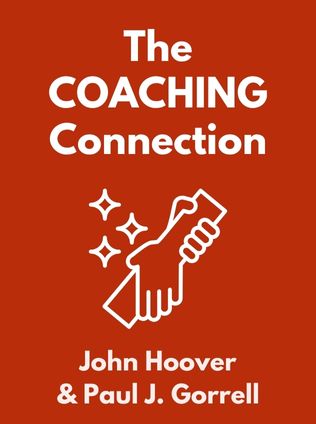
The Coaching Connection
A Manager’s Guide to Developing Individual Potential in the Context of the Organization
By John Hoover, Paul J. Gorrell
Published 08/2009
The Coaching Connection: A Manager's Guide to Developing Individual Potential in the Context of the Organization
By Paul J. Gorrell and John Hoover
About the Author
Paul J. Gorrell, Ph.D., is the Managing Director of the Human Capital Consulting practice at Partners in Human Resources International. John Hoover, Ph.D., a former executive with the Walt Disney Company and McGraw-Hill, is a thought leader on the power of communication in the organizational change process. Together, they provide a comprehensive guide to developing individual potential within the context of an organization.
Main Idea
"The Coaching Connection" presents a framework for coordinating a coaching culture throughout an organization. The authors introduce Contextual Coaching, a methodology that aligns individual strengths with organizational needs. This systemic model benefits both the individual and the organization by fostering growth, development, and alignment.
Table of Contents
- The Tale of Two Clients, or The Coaching Conundrum
- The Benefits of Using the Contextual Coaching Model
- The Basics of Contextual Coaching
- Steps in the Contextual Coaching Process
- Area of Behavioral Focus: Strategy
- Area of Behavioral Focus: Structure
- Area of Behavioral Focus: Culture
- Area of Behavioral Focus: Communication
- Area of Behavioral Focus: Talent Systems
- Area of Behavioral Focus: Talent Solutions
- Area of Behavioral Focus: Development
- Area of Behavioral Focus: Team Dynamics
- Area of Behavioral Focus: Career
- Area of Behavioral Focus: Competence
The Tale of Two Clients, or The Coaching Conundrum
The authors explore the dual nature of coaching clients: the individual receiving the coaching and the organization that employs them. Effective coaching aligns the interests of both, leading to improved individual performance and organizational success.
"Coaching is never only about the organization, nor is it about individuals in isolation. It is about all of it, all of the time." - Paul J. Gorrell and John Hoover
The goal is to create a win-win scenario where the individual's growth and development enhance the organization's performance. This dual focus ensures that coaching interventions are meaningful and impactful, creating a synergy between personal and organizational goals.
The Benefits of Using the Contextual Coaching Model
The Contextual Coaching model provides a comprehensive approach to leadership development. It aligns the individual's needs with those of the organization, fostering a coaching culture that supports continuous improvement and alignment. This model emphasizes the importance of context, ensuring that coaching is relevant to both the individual's role and the organization's objectives.
"All growth and development of your coaching clients take place within the context of the organization." - Paul J. Gorrell and John Hoover
The model consists of 10 components that represent the competencies of well-balanced leadership, helping organizations become employers of choice. These components include strategy, structure, culture, communication, talent systems, talent solutions, development, team dynamics, career, and competence. Understanding and integrating these components into coaching practices can significantly enhance leadership effectiveness.
The Basics of Contextual Coaching
Contextual Coaching involves working with clients within the framework of their organization. Confidentiality is crucial to building trust, and the coaching process includes a structured approach to development that accelerates leadership potential. The process emphasizes the importance of aligning individual goals with organizational strategy, creating a cohesive development plan that benefits both parties.
"Truly effective coaching must be conducted within the context of your organization." - Paul J. Gorrell and John Hoover
The process begins with an engagement launch, followed by assessment and exploration, strategy and goal setting, ongoing development, and engagement conclusion. Each stage is designed to build on the previous one, ensuring a comprehensive and integrated approach to coaching.
Steps in the Contextual Coaching Process
The coaching process is structured into five key stages:
Sign up for FREE and get access to 1,400+ books summaries.
You May Also Like
The Subtle Art of Not Giving a F*ck
A Counterintuitive Approach to Living a Good Life
By Mark MansonRich Dad Poor Dad
What the Rich Teach Their Kids About Money - That the Poor and Middle Class Do Not!
By Robert T. KiyosakiHow To Win Friends and Influence People
The All-Time Classic Manual Of People Skills
By Dale CarnegieQuiet: The Power of Introverts
The Power of Introverts in a World That Can't Stop Talking
By Susan Cain



















